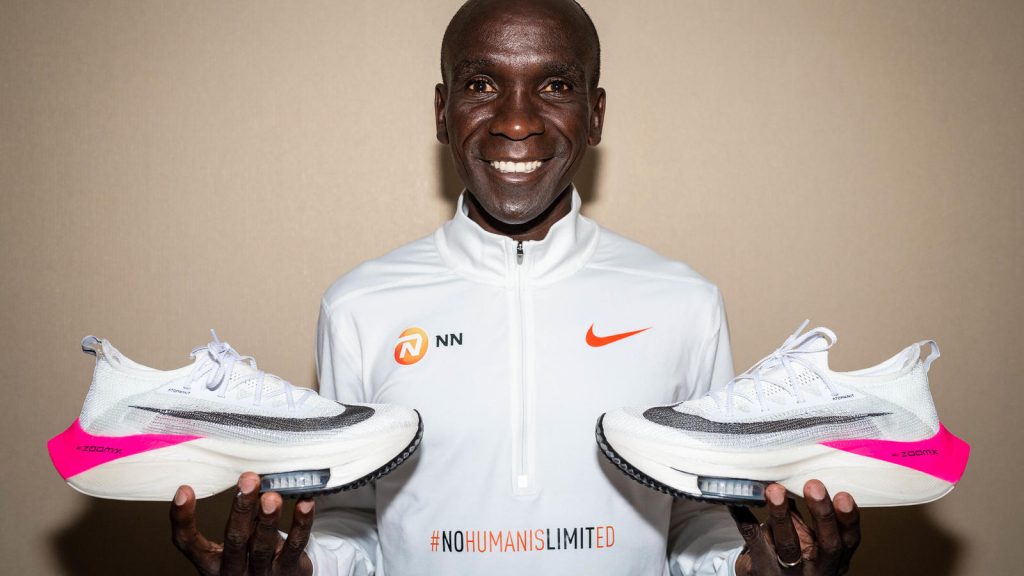Member Insights: Kipchoge Shows Sport Must Embrace Technology And Innovation
October 14, 2019
Outside of the Olympic Games, we have rarely seen a weekend like it for athletics, and never before for marathon running.
On Saturday in Vienna, Eliud Kipchoge became the first human in history to run a marathon in under two hours. And on Sunday in Chicago, his fellow Kenyan Brigid Kosgei smashed the women’s marathon record by 81 seconds.
Both made worldwide headlines and inspired millions of people. I found the scenes of mass jubilation in Eldoret in Kenya, Kipchoge’s hometown, as he crossed the line particularly moving. But they also inspired strong negative reactions which pointed out some of modern sports marketing’s biggest dilemmas.
Nike was naturally to the fore, as both Kipchoge and Kosgei wore Nike’s Vaporfly Next% shoes, proving beyond doubt what sports scientists already knew – that these shoes are an historic breakthrough in running tech performance.
“All the innovations added significantly to the spectacle and the sense that something special was being attempted.”
Equally naturally, the reporting of this ran side-by-side with the controversy surrounding Nike’s backing of Alberto Salazar and the Oregon Project, and the spectre of doping that continues to haunt athletics.
For sure, Nike still has questions to answer over its involvement with Salazar. And quite right too: as the world’s leading sports brand, it should be held to the highest standards on and off the track.
But that shouldn’t take away from what a genius piece of marketing this weekend was by Nike. Long-distance running is athletics’ only mass-participation, and therefore mass-marketing, opportunity and for the millions who run worldwide the Vaporfly Next% is now the must-have shoe inspired by Kipchoge and Kosgei.
Innovation in a broader sense was another theme of the weekend that inspired strong reactions. I was surprised in particular by how many people, including many who usually champion innovation, were against the Kipchoge event because they felt all the innovations – laser guide, the big-name pacemakers, drinks on the go, optimised course – made it artificial.
I respect that, but disagree.
Yes, Kipchoge was in ideal conditions, but it’s not like he was on a bike. And, in my view, all the innovations added significantly to the spectacle and the sense that something special was being attempted. It was, and he did it! And people want to see something special, which is why millions tuned in and it made worldwide headlines. (Chapeau, incidentally, to the Olympic Channel for being one of the platforms to show it live. Faster, Higher, Stronger.)
Sport is in the entertainment business, it ignores that, and the role that innovation and technology can legitimately and meaningfully play, at its peril.
Member Insights: If you want to write a piece for iSportconnect email ben@isportconnect.com


